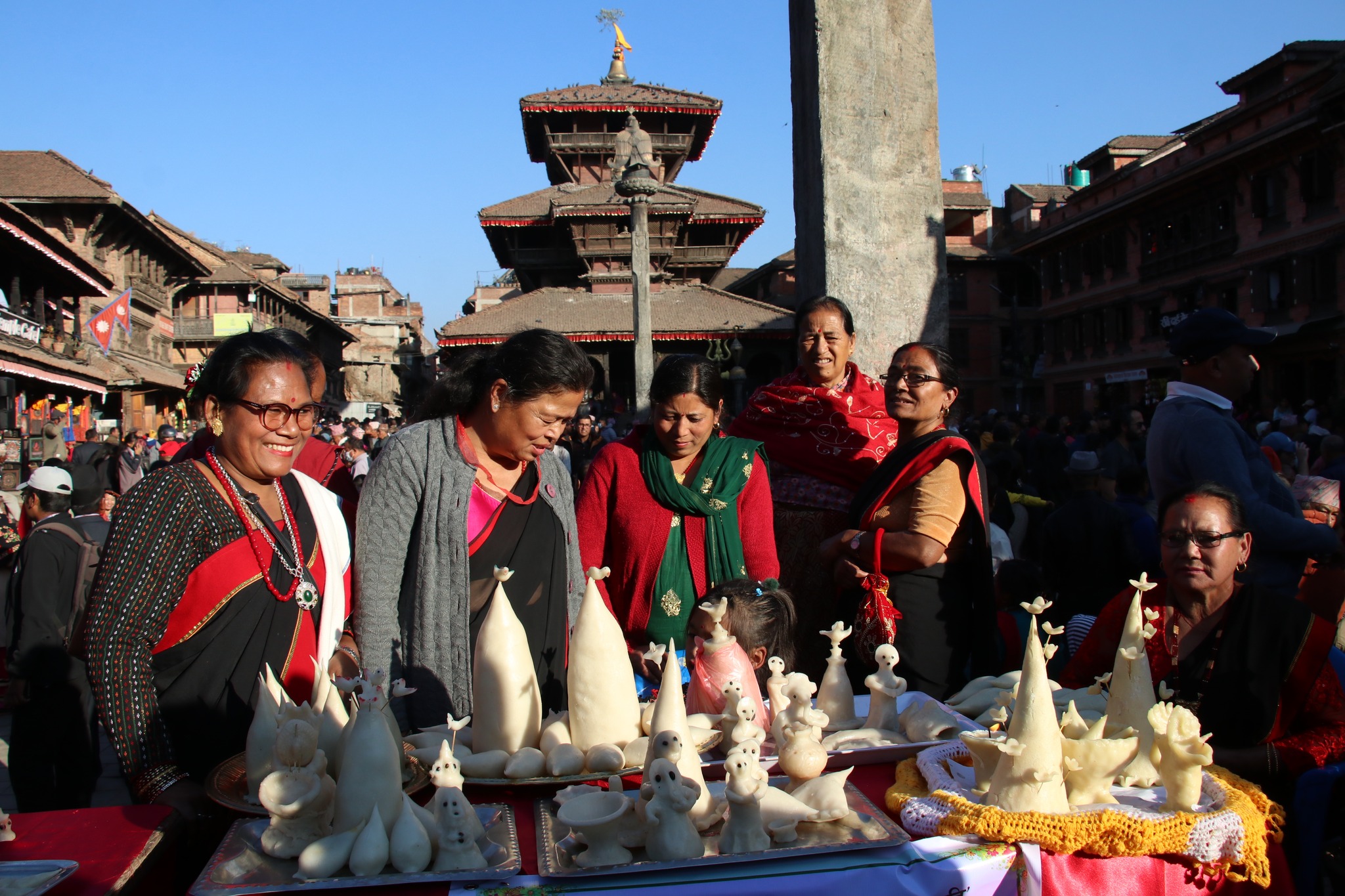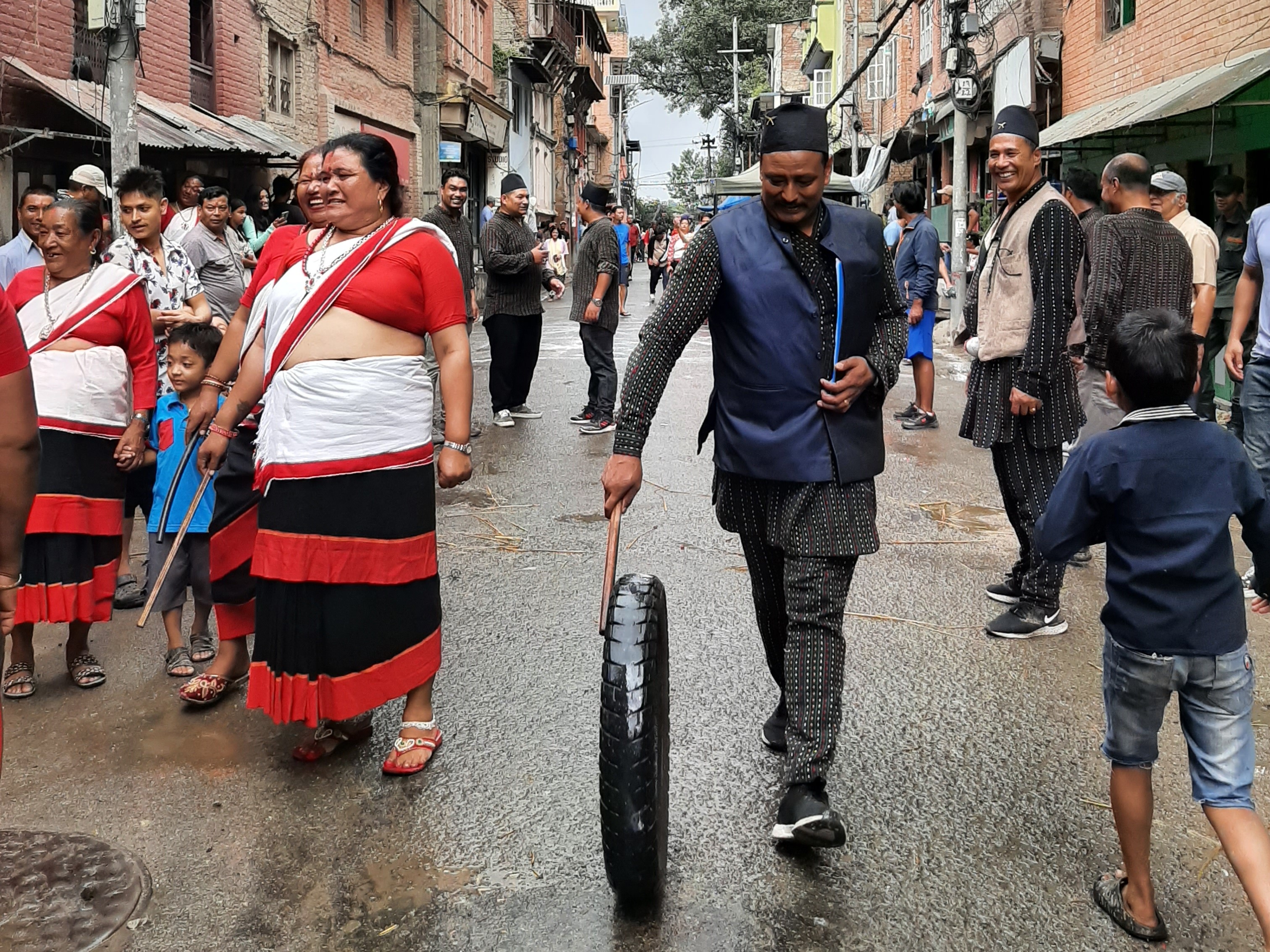
It’s no secret that male dominance has been a norm in Nepali or for that matter Asian culture from days of yore. Women have had a miserable time coping with this social stigma. Some fought their way through; most just bowed down to it. This story speaks for itself.
“Mata syaeema pass, mata chyakeema fail”. “This Newari vernacular with a mix of English literally means: the person who is supposed to snuff out the oil-lamp has succeeded whereas the one who is to light it has failed.
“That was my mother who uttered those words. To explain why these words were voiced loud enough for everyone to hear in our house, I need to digress and take you back to my childhood days,” says Sarita to me.
After much persuasion, Sarita had agreed to oblige this scribe by recounting her story on one condition that I left out the real names.
It all goes back to the story of a girl whose entire young days seemed laced with poignant drama that, though true, reads like fiction.
Younger days
Ours was a fairly large Newar family—eight members. The family included dad, mom, the eldest son, Shyam Prasad Shrestha, succeeded by daughter, Sarita Shrestha (yours truly), followed by my siblings, sister Kavita, brothers Ramesh and Dipesh and finally, the apple of my parents’ eyes, the youngest, Rita. The age difference between two consecutive members of the entire gang was like two years.
Dad was in business of sorts—never stuck to one. I still have some faint recollections of the shop, a grocery store, we had at Ratna Park. It must have been in the early nineteen sixties. How all brothers and sisters loved to visit the shop and dawdle around in the park, right across the road! Clean, with sprawling lush green lawns, flowers to blend and no crowd, Ratna Park, then, was just ravishing. Even the green turf smelled so fresh!
Bag of idiosyncrasies
Large family, big fun by the bucketful! Never a day passed without fun and games. A rebellious lot, everything went among us under the sun—frolicking, tomfoolery, horseplay, ragging, you name it. Temper tantrums and endless squabbles were not uncommon, apparently. Mom, like most mothers, was a housewife, and it goes without saying, the skipper of our big household.
Talking about tempers, mom had the foulest—and a voice pitched at an ear-splitting decibel, which threatened to knock down our old house built by granddad. Dad remained always calm.
The next in line for an uncharacteristic temper was I—must have inherited it from my mom. The person who most angered me was my elder brother, Shyam. We never saw eye to eye on anything and were on a constant warpath. We squabbled, hurled accusations and insults at each other, which at times turned unpleasant.
I remember how once Shyam freaked out and threw a glass of water over me. Without so much as a thought, I grabbed a half-full flask of tea and decanted it over him. Fortunately for him, the tea was only lukewarm.
There were times, though rare, when we both chose to “bury our hatchets” and behaved like a true “bro-n-sis”.
Given my fiery temper, my siblings were fearful of me—even Shyam would think twice to test my patience.
Being the eldest, I had to do most of the house chores. Mom did lend a hand but often lapsed into illness with abdomen pain. Mom suffered with a uterus disorder.
House chores were indeed daunting if mom fell sick and Kavita, who had a penchant for staying at our ‘mama ghar’ (uncle’s), was not available when needed: Cooking, washing clothes, mopping and the most formidable of all, carrying gagris (traditional bronze pitchers) of water on that narrow rickety wooden staircase to our kitchen on the topmost fourth floor.
Given my mom’s frequent illness, the daily chores for me meant juggling between daily schedule that included waking every morning on time, making sure that everyone followed suit, did their beds, brushed their teeth, ate on time and dressed up so that I could bundle them off to school—then rush myself too to school.
Our family indeed was one of its kinds. Every brother and sister had his/her own way. Shyam, the eldest, constantly whined over something and nothing. Ramesh spoke less, ate less, relished outside food, hardly stayed home, bunked school, traded fist-cuffs with Shyam—and got frequently bashed up by mom.
Kavita, fair, good-looking, withdrawn and submissive was a quintessence of a perfect daughter, adored by dad and envied by me. At times she made me stand before the mirror and stare at my dark skin and unattractive features.
I still remember the day dad once bought a sitar for her. Excited at the prospect of learning sitar, I too expressed my curiosity; but I was put off over matters of household work. But what really made me close to tears was my parents’ comment that it would not look seemingly on me. For me, the message was clear—I was ugly.
Dipesh, the youngest among brothers, was again quite a character. A stickler for perfection, he kept his room and things in shipshape; but this fixation of his at times rode the skies. Too young, stubborn and pampered, Rita seemed to cry all the time.
Different though we all were, fight we did so often, there were lots of happy moments spent together and above all, we loved dad-mom and each other.
School life
School life for me began a little late. My first school was at Sigal Thahity, Kathmandu with the big stupa, the Kathe Simbhu (a replica of Swayambhu), a stone’s throw away from our house at Naghal. We sat on straw mats and parodied teachers.
After two years, dad got me and sis Kavita into a better school. I really enjoyed the new school and did pretty well securing the first or second position in the class. I just loved painting and my passion once got me the first position in an inter-school competition. Little did I realise that my life was to take a sharp twist!
A turn in life
After Class IV, dad took me to a high school where my elder brother, Shyam, studied in Class V. To my great surprise, I was made to sit for Class IV entrance exams, when I rightly deserved admission into V. As senior brother was in Class V, a junior and a sister at that, had to stay under him, my parents decided.
The administrator at the school was baffled too. Nothing doing, my family norms dictated that I asked no question. Whatever my parents said was to be accepted as sacrosanct.
My parents whisked me away to a different school and got me admitted into Class IV. But, as it turned out, a steady school life seemed destined to elude me again.
Lost and confused
And came that ill-fated day when my anxious parents started “thinking ahead”. They drew conclusions that at 15 and doing Class V, I would outgrow myself for the SLC exams. Near desperation, they decided, to my horror, to make me (doing the 5th standard) sit privately for the SLC sent-up exam!
Even the thought of sitting for the exam gave me dizzy spells. Fiercely indignant, I summoned enough courage to put my foot down. I cried, I implored—but every attempt drew a blank. Tuitions upon wearisome tuitions were heaped upon me. But if anything, they made me more disoriented. I sat for the exam and failed miserably.
Still reeling under that shock, I cringed in horror when my parents jumped to another of their presumptuous deductions that it would be best for me to join school in the 9th standard (jump four levels!). Off I was dragged to a government school.
Disorientated and frightened, I hated the unfamiliar surroundings at the new school. Then, the dreaded final exams approached. Apprehensive and confused, I sat through it—and to my consternation, sailed through to the tenth class.
The results made me cry (I had barely made the pass marks) my eyes out when I thought back to my past meritorious performance in earlier schools. Now I had to gear myself up for the sent-up exams and my past failure weighed heavily upon my mind.
I passed the exams, albeit with pitiable marks. Call it life’s little irony or fate, Shyam, my elder brother, studying in a different school, had to stay back in the eighth and flunked in Class IX to fell in with me in the 10th, denying my parents their wish to keep me at least one class under him.
Much to my intimidation, the SLC exams, too, arrived. Lacking confidence and distrustful of myself, I appeared for the exams. So did Shyam.
Results out
Then there were the results! One early morning, a huffing and puffing brother Shyam brought the news. To my utter disbelief, I had got through—but he had failed!
Moments later the silence of our house was shattered by a piercing wail, soon followed by a sobbing, from my parents’ room. And those piercing words blurted out by my mom wafted across—Mata syaeema pass, mata chyakeema fail … mata syaeema pass ………………., in quick succession.
It was so tragic for my mom that the one she thought as the upholder of the family repute and integrity had failed, while the one least thought of as family (because daughters are sent away in marriages to make their own family), had survived. Brother Shyam fell in with mom with his fitful sobbing.
I froze to the ground, numb with mixed emotions that swelled within me. I wavered between two minds: to rejoice in my success which seemed right, or comfort mom and big bro and join them in their grief. But I could not screw up enough courage to face them. And the words kept ringing in my years, Mata syaeema pass……………….
—
With that faraway look and eyes that seemed to soften at the corner, Sarita wound up her story.
To my question, “Sarita, ma’am, did you ever forgive your parents for the gross injustice meted out to you? Do you still love them, after all that you went through?”
She lost not a single moment in replying. “Of course, I love them to this day, though my dad’s no more. I don’t blame them … I hold our male dominant society, the wrong social stigma and norms responsible, which has wrongly detached girls from the family structure. Things have changed today though.”
Upon my curiosity to know more about her brother Shyam, she guffawed and put in, “you know what, he flunked the SLC exams the next year too!”
As I took leave of her, the words curiously kept playing in my mind: “mata syaeema pass, mata chyakeema fail … mata syaeema pass………………….”, and my head started shaking involuntarily.























